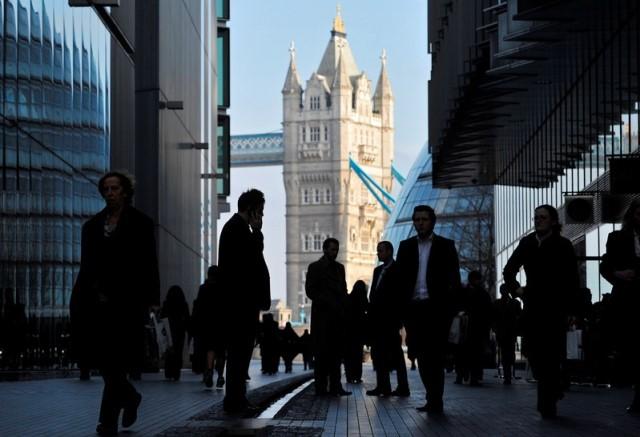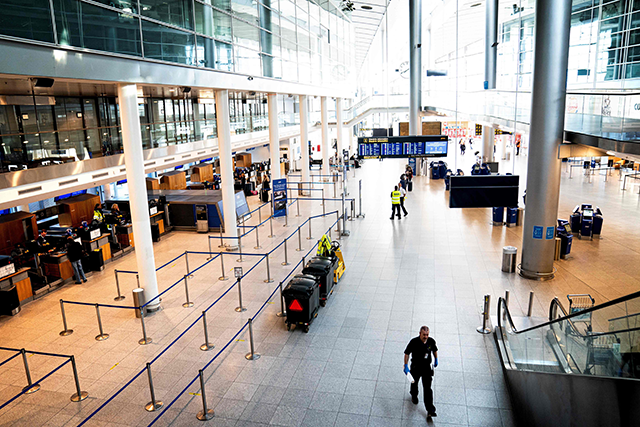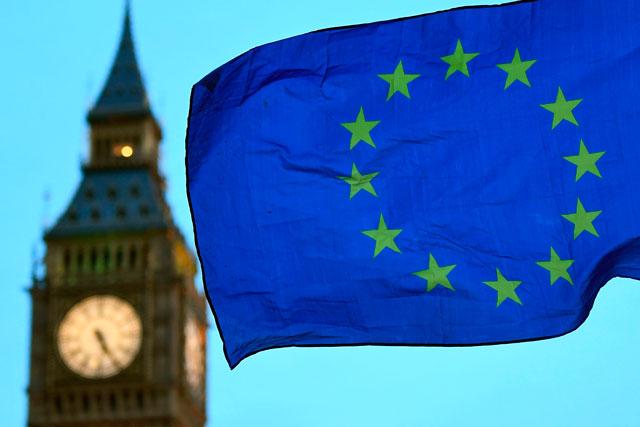You are here
UK economy near standstill as Brexit approaches, surveys show
By Reuters - Mar 05,2019 - Last updated at Mar 05,2019

FILE PHOTO - Office workers are seen in the London Place business district near Tower Bridge in central London February 9, 2011 (Reuters photo)
LONDON- Britain’s economy came close to stagnating again in February as services companies, preparing for Brexit, cut staff at the fastest rate in more than seven years and consumers reined in their spending, surveys showed on Tuesday.
The figures suggested growth in the world’s fifth-biggest economy was near a standstill as Prime Minister Theresa May tried to win last-minute Brexit concessions from Brussels.
IHS Markit, a data firm, said its UK Services Purchasing Managers’ Index showed Britain’s economy was set to grow by just 0.1 percent in the first three months of 2019 compared with the last three of 2018.
After touching its lowest level in January since immediately after the Brexit referendum in 2016, the services PMI edged up to 51.3 from 50.1. That was better than the median forecast of 49.9 in a Reuters poll of economists.
But Howard Archer, an economist with EY Item Club, a forecasting firm, said the risk was very real that economic growth in the first quarter of 2019 would be weaker than his existing forecast of 0.2 percent.
“There is a genuine chance now that the Bank of England will sit tight on interest rates through 2019 – especially if Brexit is delayed and extends the uncertainty,” he said.
Separate data on Tuesday showed consumers slowed the increase in their spending in February and focused on buying food, including for stockpiling, rather than non-essential items.
Sterling rose initially on the higher-than-expected PMI reading but soon gave up its gains and was down 0.2 percent against the U.S. dollar at $1.3158 at 1125 GMT.
BREXIT NEARS, BUT DELAY POSSIBLE
Britain’s economy defied forecasts of a recession after the 2016 referendum vote to leave the European Union. But growth slowed sharply in late 2018 as worries mounted about the possibility of an abrupt, no-deal Brexit on March 29, and the global economy also weakened.
Carmakers based in Britain fear that their complex supply chains could be damaged by Brexit, and the Bank of England said on Tuesday other European Union countries were not ready for possible financial disruption.
Under pressure from within her Conservative Party, May is still seeking to rework the Brexit deal she agreed with other EU leaders. She has also raised the possibility of a delay of the departure date until June.
IHS Markit said optimism about the year ahead among services — ranging from giant banks to high-street hairdressers — had been lower only at the height of the global financial crisis and immediately after the Brexit referendum.
Many investment decisions were on hold and some companies said European clients were delaying committing to new projects in Britain. New export orders among services contracted for the sixth month in a row.
World shares tick higher on U.S.-China trade deal optimism
Companies cut jobs at the fastest pace since November 2011, with many opting not to replace people who left voluntarily.
Some companies said Britain’s low unemployment rate was making it hard to find skilled staff.
IHS Markit said the main positive in February was the weakest increase in costs for services firms since May last year, opening up scope for offering discounts to clients.
Related Articles
BRUSSELS — Businesses in the eurozone suffered "an unprecedented collapse" in March because of the novel coronavirus pandemic, according to
LONDON/BRUSSELS — Prime Minister Theresa May will trigger Britain’s divorce proceedings with the European Union on March 29, launching two y
LONDON — European stocks and oil prices snapped a four-day losing streak and a rally in bond markets fizzled out on Thursday, as investors b


















